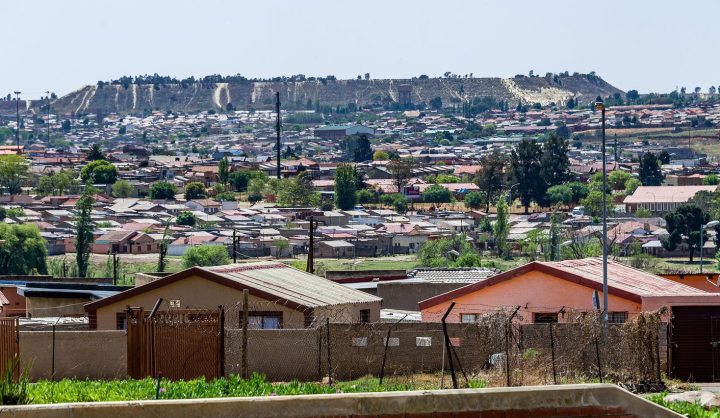South Africa
Op-ed: South Africa’s cities must include everyone

South African cities drive national growth, and they’re growing impressively. But too many people are being left out of this good news story. By GECI KARURI-SEBINA.
Times are grim. Across the board, we share concerns about slow economic growth, the continued looming threat of junk status, rising costs, tight budgets and tightening belts. While we are all looking for the light at the end of the tunnel, of which cities are acknowledged as one (Are Cities our Golden Goose?; CDE Growth Agenda Series: CITIES,, we have some hard truths to face about whether we are all pulling on the same side.
Why would we not, at least in cities? The forthcoming State of South African Cities report (22 June 2016) shows that our metropolitan areas have over the past two decades increasingly driven national economic growth. The Gauteng City Region alone accounts for a third of national economic activity (31.9%), while the set of eight metros combine to generate almost two-thirds of the country’s economic activity and half of all employment in South Africa.
This growth, while impressive, has been exclusive; the good story has not included everyone. It has been exclusive in that the economy has continued to be concentrated into the same old economic nodes (think Sandton) or new economic nodes (think Umhlanga). While there may be nothing wrong with that per se, what the economy has distinctly failed to do is to grow where the masses of the population live – in the huge sprawling, largely peripheral and primarily black townships of Johannesburg, Cape Town, eThekwini, Tshwane, Ekurhuleni. This has meant that all those people have no option but to continue to commute (at significant time and cost) to where jobs are (if there are any at all) because there are no jobs where they live, and the lack of affordable housing in the affluent nodes means that they certainly cannot afford to move closer to work.
The benefits and incomes from this growth has also concentrated into the same hands, while the main growth in employment for the masses has been in the informal sector. We are somehow the baristas of an “Irish Coffee” society, and South Africa has continued to increase inequality while comparator countries like Brazil have actually managed to decrease it.
These patterns are real, and they are not good for anybody, certainly not for the majority of poor people who are vulnerable and dehumanised. They also do not bode well for a common sense of community and place, for shared values and morality, for safety, for security. We know this – or least we have seen and experienced it. “Where there is no justice, there can be no peace” is a popular slogan, and it has held as true in our country and cities as it has elsewhere throughout history.
The social instability that we face under the general rubric of “service delivery protest”, and somewhere within the core of simmering outrage among emerging political and social movements, is a growing consciousness about the politics and economics of exclusion. When “we” seek good credit ratings and those holy but evasive good-growth figures, who are “we” and who is with “us”? Trickle down, a term no longer used in informed polite conversation, has in fact been the unspoken rationale and justification for our blunt push for economic growth.
One key idea for how we could change trajectory has been the call for spatial transformation. The concept is complex technically, but what it simply seeks to do is to nip in the bud the continued exclusive character of our growth. The agenda demands a greater awareness that space matters, and that how we configure things in space determines where economic opportunities concentrate in relation to where people reside, and this affects access and costs to specific parts of society. It also demands a focus on the affordability of means in the city – for accommodation, for mobility, for the basic amenities and dignities. It includes a concern with how space can offer livelihoods for all, meaning that how we manage our city places cannot be ignorant of the ways in which people generate income and survive, even if these be “informal” in the sense that they cannot afford or bother with compliance with those customs and norms that have only worked for the few.
So if we are to get something out of the many and increasingly violent protests and so-called “radicalisation”, it should be the recognition that the pot is simmering. People are not interested in hearing about and applauding growth for growth’s sake. It has not served them well – at least not well enough. Not for a populace that is un- or under-employed, hugely aspirational, and suffering from their front row seats to the spectacle of prosperity and excesses for the privileged few. Going forward, if our country and its cities cannot convince those who live in them that there is a commitment to pursuing the kind of growth that will include or at least benefit them, then they simply (and sensibly) ain’t with it. DM
Dr Geci Karuri-Sebina manages the research programme at South African Cities Network, and her own work focuses on city governance, policy, and planning. Geci has two decades’ experience working and publishing in the fields of urban development, innovation and foresight. Her most recent publication is the book Innovation Africa (Emerald Books, 2016).
Photo of mine tailings in Johannesburg by Steven dosRemedios via Flickr

















 Become an Insider
Become an Insider